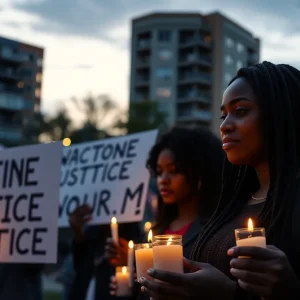News Summary
Former Rep. Adam Kinzinger has openly criticized House Speaker Mike Johnson’s defense of President Trump’s pardons for January 6 rioters. Kinzinger argues that invoking redemption for those involved in the Capitol riot is inappropriate and calls for Johnson to publicly defend his stance. This controversy reflects a broader divide within the Republican Party regarding the morality of pardoning individuals who engaged in violent actions against law enforcement during the insurrection. As the debate unfolds, the implications for party unity and accountability remain critical.
Adam Kinzinger Calls Out House Speaker Over Trump’s January 6 Pardons
In a recent clash of political opinions, former Rep. Adam Kinzinger has made headlines by taking a firm stand against House Speaker Mike Johnson’s defense of President Trump’s controversial pardons for individuals involved in the January 6 Capitol riot. During an appearance on a popular news program, Kinzinger didn’t hold back and expressed his anger over Johnson’s use of the concept of redemption when referring to those pardoned.
The Heart of the Matter
Johnson’s remarks included a suggestion that those who received pardons deserved a second chance after their actions in the insurrection that shook the nation. This has sparked outrage among many, especially Kinzinger, who firmly believes that using religious texts to rationalize such decisions is inappropriate. His challenge was clear: if Johnson feels strongly about the pardons, he should step up and publicly defend them.
Pardons That Raised Eyebrows
To put it into perspective, on his first day back in office, **Trump issued “full, complete, and unconditional pardons”** to around 1,500 rioters linked to the events of that infamous day. This list notably included individuals who were accused of attacking police officers. This decision has left many questioning the morality and implications of such pardons, particularly when it involves individuals who displayed violent behavior.
Johnson’s Position
Speaker Johnson stands firm in his belief that everyone deserves a chance at redemption, arguing that the rioters did not face a severe enough penalty for their actions. He expressed that Trump’s decisions are to be respected and that he doesn’t take it upon himself to second-guess the president.
Political Fallout and Republican Divide
Kinzinger’s criticism isn’t coming from nowhere. It reflects a broader unease among several Republican lawmakers, including Sen. Jerry Moran, who suggest that pardoning individuals convicted of violent crimes—especially those who harmed law enforcement—crosses a line. Many in the Republican Party share this sentiment but feel reluctant to openly challenge Trump due to his strong influence within the party.
This situation has created a visible divide among GOP leaders—a tricky balancing act between respecting the party’s past president and standing up for the principles of justice and moral responsibility. Kinzinger voiced his belief that the reputations of those supporting the pardons, including the individuals who received them, will not age well in historical context. It’s a sentiment that many feel rings true, especially with the enduring impact of the January 6 events.
What’s Next?
As this debate heats up, Kinzinger’s challenge to Johnson remains a focal point. Johnson’s office, along with the White House, has been approached for more comments on this pressing matter. The tension within the party continues to unfold, leaving many wondering how it will affect future discussions on accountability, justice, and party unity.
This controversy serves as a stark reminder of the lingering aftershocks from the January 6 riots—a day that will forever be etched in American history. The conversations—and arguments—that stem from it will likely continue to evolve as the political landscape shifts, with many Americans keeping a keen eye on how their representatives choose to navigate these contentious issues.
In the end, the conversation about **redemption**, **justice**, and accountability is far from over. As more voices join the fray, the hope is that lessons will be learned and constructive, respectful dialogues will emerge.
Deeper Dive: News & Info About This Topic
- CNN: Adam Kinzinger Calls Out House Speaker Over Trump’s January 6 Pardons
- The Hill: Trump’s January 6 Pardons Explained
- AOL: Kinzinger Rips Johnson for Defending Trump
- Wikipedia: General Information
- Encyclopedia Britannica: General Reference








